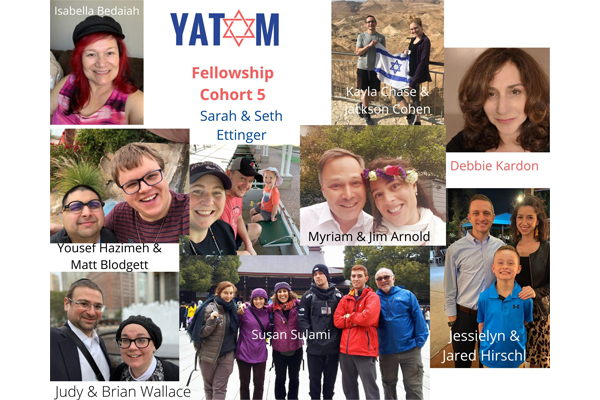Making a decision about where to send your children to school can be an overwhelming task. Considerations include: your child or children’s ages and personal learning style(s), what you would like your children to learn, and what environment best suits them. On the following pages, we have provided information about high-quality schools that offer an excellent Jewish and secular education in Phoenix, Chandler and Tucson.
NOTE: In this issue we present information about three Arizona Jewish day schools. All Jewish day Tucson Hebrew Academy (THA) is Southern Arizona’s only Jewish day school. The mission of the Academy is to provide a pluralistic kindergarten through eighth-grade Jewish day school where educational excellence is fostered through an interdisciplinary, integrated General Studies and Judaic curriculum. Tucson Hebrew Academy teaches students to apply Jewish values and learning to everyday life, enabling the children to contribute to their community and to the world.
Hebrew Education
The Academy’s approach is to teach modern Hebrew as a living language. Beginning with kindergarten, students acquire the language through listening and responding, which requires them to learn to think in Hebrew. The Academy believes this method provides students with the essential building blocks of language and allows students to communicate quickly and effectively, leading to a strong foundation for reading, writing, spelling and the composition of thoughtful, cogent Hebrew essays.
Judaic Studies
Complementing Hebrew education, Judaic studies at the Academy are interwoven with secular studies. “This approach enables students to acquire a heightened consciousness of Jewish heritage, tradition, culture, ethics and values as relevant to their lives,” explained Julee Dawson, director of development and community relations. She added, “They study the Bible, Jewish holidays and traditions, engage in dynamic games, plays, dances and songs. This is a highly innovative curriculum, which demonstrates to our students that Jewish ethics and history are related in significant ways to world history, science, mathematics, literature and the arts.”
In addition to Judaic studies, the Academy incorporates the study of comparative Judaism, where a unique experiential prayer program sensitizes children to the major movements in Judaism. Students learn the philosophy, history and ritual of each movement in Judaism: Orthodox, Conservative and Reform. “Through these studies students develop an appreciation and understanding of the many ways Judaism is celebrated. K’lal Yisrael becomes a real part of their life, philosophy, history and practice,” Julee emphasized.
Secular Education
Recognizing the importance of a strong secular education, the Academy provides an integrated curriculum to prepare students for academic success.
Kindergarten to Grade Four
With a strong emphasis on establishing core skills and knowledge in the Academy’s youngest students, kindergarten and first-, second- and third-grade classes each have a teacher and a paraprofessional to foster learning suitable for each student’s individual developmental stage. The curriculum emphasizes critical thinking in addition to basic skills, focusing on interpretive reading, writing and discussion through the Socratic method.
One unique program offered to fourth-graders and kindergartners at the Academy is the first-of-its-kind Ni Hao (“Hello”) China program with the Tucson Chinese Cultural Center. Fourth-graders study the country and culture of China and the inner workings of a cultural center. They learn to become business managers, curators, grant writers and other specialists of a gallery, as well as incipient “experts” on China. They create their own Cultural Center, which is open to the public at the Academy. Kindergartners spend six weeks in this collaboration between THA and the Cultural Center, learning about Chinese family and cultural life.
Grades Five to Eight
Through an academically rigorous program, students in grades five through eight master the skills that will serve them in high school and beyond. They learn comprehensively. A four-year sequence covers Western civilization from ancient Samaria, Israel, Egypt, Greece and Rome to modern times. A schoolwide expository-writing sequence builds critical research and writing skills that enable students to organize and present coherent, articulate essays and research papers.
Blended throughout the curriculum are studies in music, art, drama and creative writing. Students acquire a mastery of modern Hebrew language and history. For example, when studying ancient Egyptian civilization in social studies, students paint hieroglyphics in art class and learn ancient Hebrew songs in Judaic studies to create a deeper understanding of historical contexts.
The Middle School curriculum encourages students to appreciate the classical arts, providing field trips to operas, museums and philharmonic concerts. Children learn to appreciate the beauty of Shakespeare’s language and poetry through a four-year Shakespearean sequence that exposes them to Julius Caesar, Romeo and Juliet, The Merchant of Venice and Othello. Studies culminate with students’ participation in a Shakespeare festival at the Academy.
Community Service
Service to the community is an essential component of the Academy’s philosophy. The student council offers leadership opportunities. Extracurricular activities are also an integral part of the Academy’s learning experience. Students participate in the publication of a school newspaper and yearbook, theatrical productions, and interscholastic and intramural athletics.






